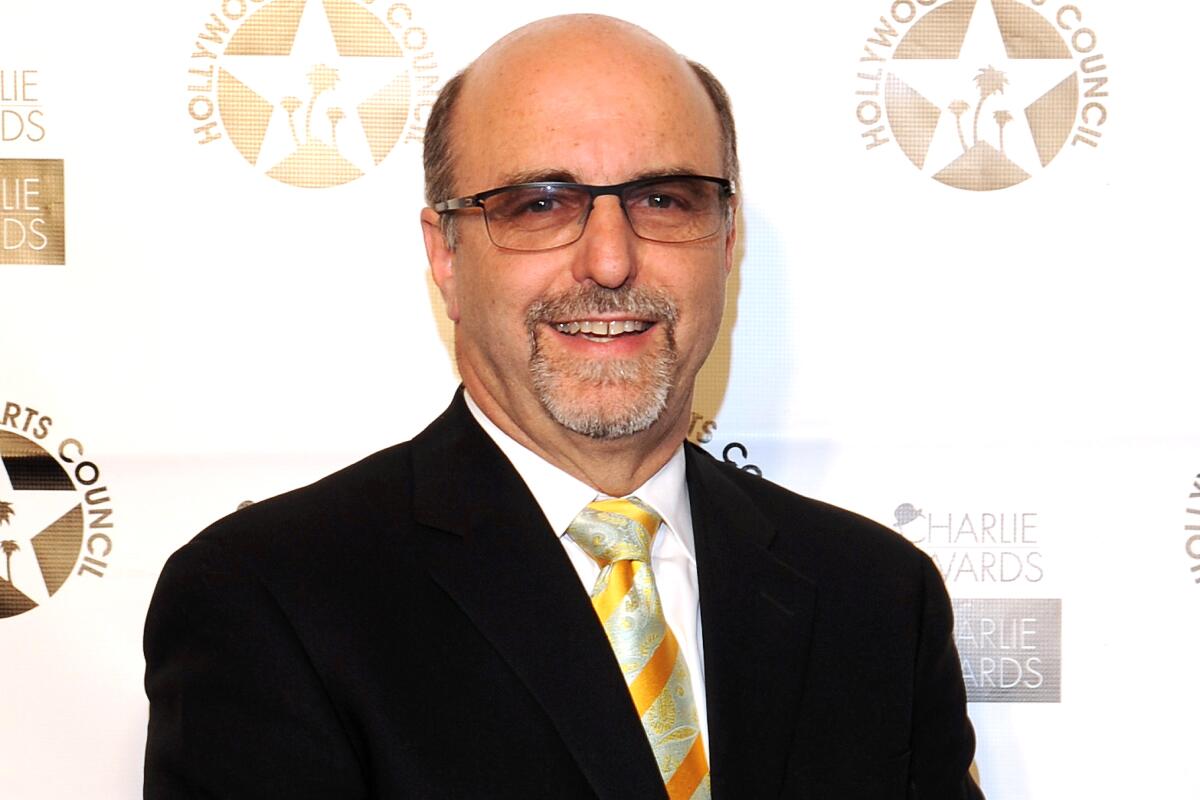Jury finds film academy member guilty of three counts of child molestation

A jury on Friday found Hollywood architect and film academy member Jeffrey Cooper guilty of three counts of child molestation.
The two-week criminal trial began May 9 at the Los Angeles Superior Court in Van Nuys, four years after Cooper was arrested and a grand jury indicted him on eight counts involving two children. Cooper, a resident of Calabasas, pleaded not guilty.
The jury convicted him on three felony charges of a lewd act on a child involving one of his accusers.
Jurors, however, were unable to render a verdict on five counts against Cooper involving the other accuser. Judge Alan Schneider declared a mistrial on those charges.
Sentencing was set for June 1. Cooper could face up to 12 years in prison.
The judge, calling Cooper a flight risk, ordered him held in jail without bail. Cooper had been free on a $5-million bond, reduced from nearly $9 million shortly after his arrest.
In June 2018, L.A. County Special Victims Bureau detectives arrested Cooper, then 66, on suspicion of multiple counts of child molestation, according to court records. The acts were alleged to have occurred on one victim between November 2006 and November 2007 and on the second between January 2012 and July 2016, according to the felony complaint for the arrest warrant. .
The two accusers are now 16 and 28 years old.
Cooper’s lawyer Alan Jackson could not immediately be reached for comment.
In his opening statement, Jackson called the allegations false, part of “a money play,” and called his client a “target” because of his “wealth, status and resources.”
On the first day of the trial, one of his accusers testified that she considered Cooper a “friend” and a “mentor,” someone she wrote songs with; he taught her to play guitar in his home music studio in his basement, she said. She claimed that when she was 12 or 13, Cooper molested her on a couch in the music studio.
The jury convicted Cooper on all three counts associated with that victim.
“Obviously the families are disappointed that the jury didn’t convict as to one victim, but they are very pleased to see the jury at least convicted as to the second victim,” said Dave Ring, an attorney for the two accusers and their families. “It was incredibly satisfying for them to see Cooper immediately remanded to prison for what he did. They’ve been put through nothing short of hell during the last four years of criminal proceedings.”
Over the years, Cooper, who testified in his own defense this week, earned a reputation in Hollywood as a top designer of movie theaters and sound studios, including an Academy of Television Arts and Sciences theater, as well as more than two dozen mixing studios that produced Academy Award nominees, according to the website of his eponymous Calabasas-based firm.
Cooper designed home studios for a galaxy of top directors, including Francis Ford Coppola, George Lucas, Martin Scorsese and Steven Spielberg. Beyond Hollywood, Cooper was the architect behind the Aish HaTorah World Center in Jerusalem, and he proposed the design for a slavery and culture museum in Benin, according to a Medium.com essay he penned in 2020.
Cooper became a member of the film academy in 2002.
“The Academy has been made aware of the alleged abhorrent behavior and will address this matter according to our Standards of Conduct and the due process requirements under California nonprofit corporation law. We would have grounds, under our rules, to expel any member convicted of a violent crime,” the organization said in a statement regarding Cooper at the start of his trial.
The academy has struggled to deal with members who have been accused of misconduct.
In 2017, following numerous allegations of sexual misconduct leveled against Harvey Weinstein in the New York Times and the New Yorker, the academy’s board of governors moved quickly to expel the producer. It also enacted new Standards of Conduct, giving the body’s leadership flexibility to take action if any member violated the new set of criteria.
More to Read
Inside the business of entertainment
The Wide Shot brings you news, analysis and insights on everything from streaming wars to production — and what it all means for the future.
You may occasionally receive promotional content from the Los Angeles Times.









